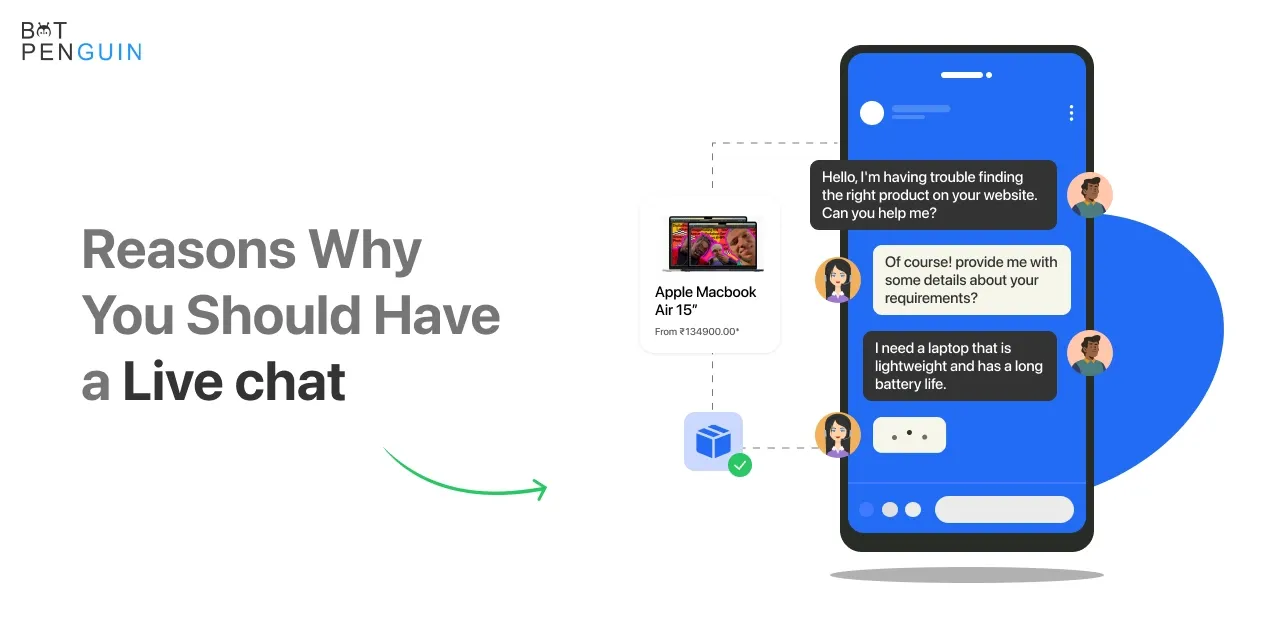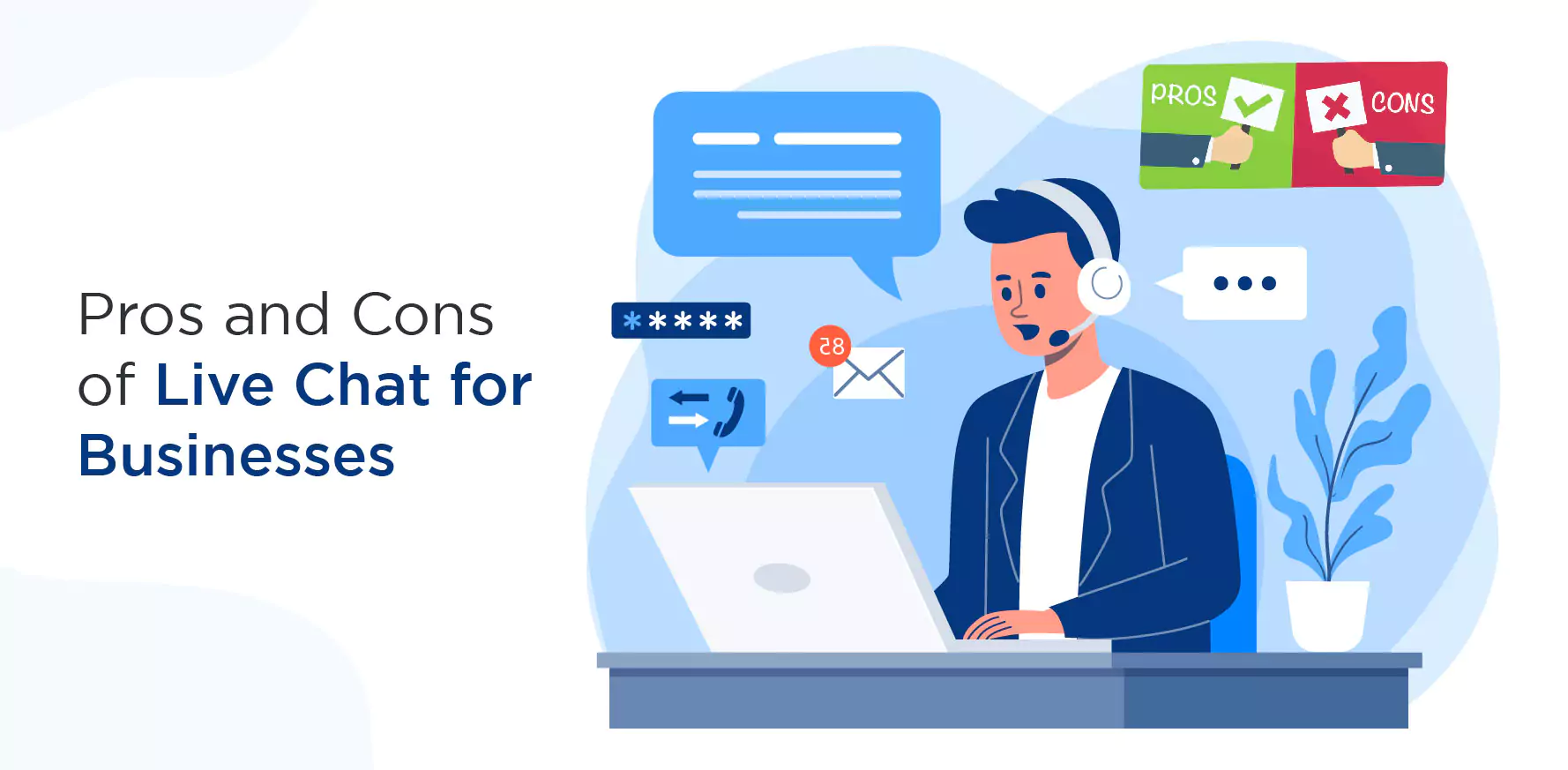Introduction
Live chat has transformed rapidly over the years, from basic text messaging to AI-powered chatbots.
According to market research firm Statista, the value of the live chat software industry has grown tremendously, from $960 million in 2021 to a projected $4 billion by 2028. This massive growth reflects the rising demand across businesses for immediate, personalized support through chat.
Originally, live chat provided a simple way for website visitors to text customer service agents in real time. While innovative then, these first chat systems could only facilitate basic conversations on rigid scripts.
Today, chatbots leverage artificial intelligence, machine learning, and sentiment analysis to comprehend complex questions and respond intelligently, like a human.
Over 75% of large companies are anticipated to adopt smart AI chatbots by 2022, as per Juniper Research.
The evolution of AI chatbots for customer support clearly shows its potential as a convenient, instant platform for customer engagement now and in the future.
The Early Days of Live Chat Software
In the early days, live chat software was a basic tool that enabled businesses to communicate with their customers through text-based conversations.
Benefits and Limitations of Text-Based Live Chat Software
Text-based live chat software brought several benefits to both businesses and customers. For businesses, it meant increased efficiency, reduced costs, and improved customer satisfaction.
Customers, on the other hand, enjoyed the convenience of getting their questions answered in real time.
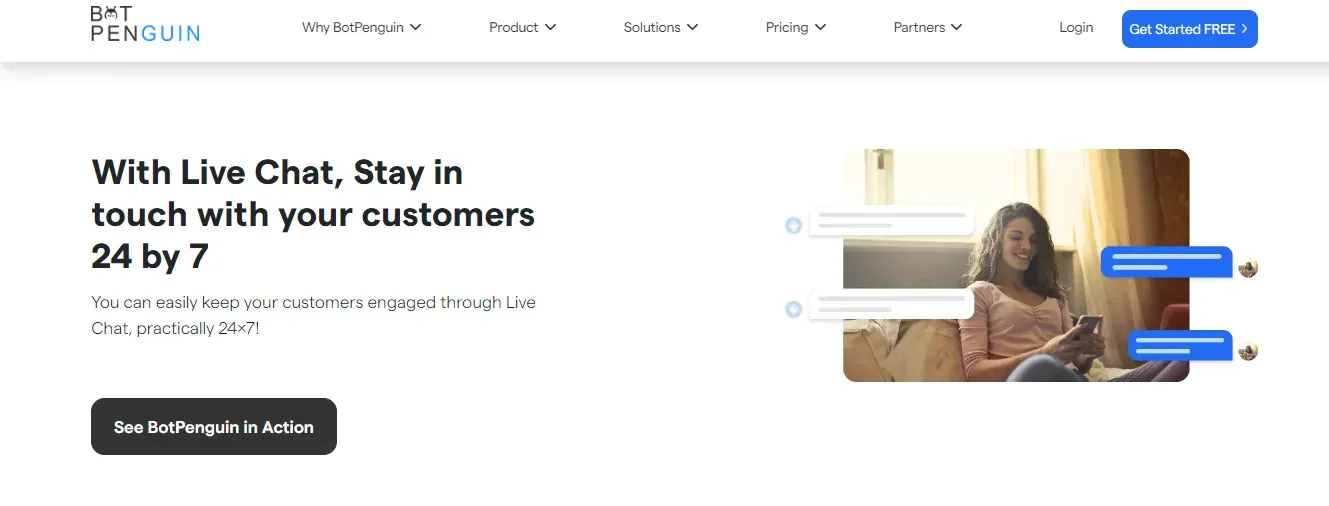
Examples of Early Text-Based Live Chat Software
Some of the early pioneers in the live chat software industry included platforms like LivePerson, BoldChat, and Zopim (now known as Zendesk Chat). These platforms paved the way for the evolution of live chat software, setting the stage for the advancements that were yet to come.
The Rise of AI in Live Chat Software
AI-powered live chat software took customer support to a whole new level. By leveraging machine learning algorithms and natural language processing (NLP), these chatbots could understand and respond to customer queries with remarkable accuracy.
Benefits of AI-Powered Live Chat Software
AI chatbots for customer support are transforming customer service. Intelligent chatbots can understand natural language, and hold meaningful conversations automating and enhancing human capabilities.
Key benefits of AI chatbots for customer support include
- 24/7 availability to engage customers anytime
- Reduced operational costs by automating repetitive tasks.
- Increased efficiency by seamlessly handing over chats to human agents
- Improved customer satisfaction through quick, contextualized responses
- Valuable customer insights from chat data to improve products and services
- Scalability to manage higher volumes of customer requests
Examples of AI-Powered Live Chat Software
Several prominent companies embraced AI-powered live chat software to enhance their customer support.
One such example is Intercom, which introduced AI chatbots for customer support for handling customer queries and routing them to the appropriate departments.
Another notable example is BotPenguin, which utilized AI chatbots to engage website visitors, capture leads, and provide personalized recommendations.
Chatbot Automation not only include of Live Chat feature, along with that it has other features too such as-
- Marketing Automation
- WhatsApp Automation
- Customer Support
- Lead Generation
- Facebook Automation
- Appointment Booking
The Role of Natural Language Processing (NLP) in Live Chat Software
In the context of AI chatbots for customer support, NLP enables chatbots to comprehend the meaning behind customer queries. Even when they are phrased differently or contain grammatical errors.
How NLP Enhances User Experience
With NLP, AI chatbots for customer support can understand the context and intent behind customer queries. It allows them to provide more accurate and relevant responses.
This technology enables chatbots to handle complex inquiries. It also provides personalized recommendations, and even detects customer sentiment.
As a result, customers feel understood and valued, leading to higher satisfaction levels.
Examples of NLP-Powered Live Chat Software
Leading live chat software providers, such as Chatfuel and LiveChat, have integrated NLP capabilities into their platforms. These chatbots can now understand and respond to customer queries in a more human-like manner, making the overall experience more engaging and interactive.
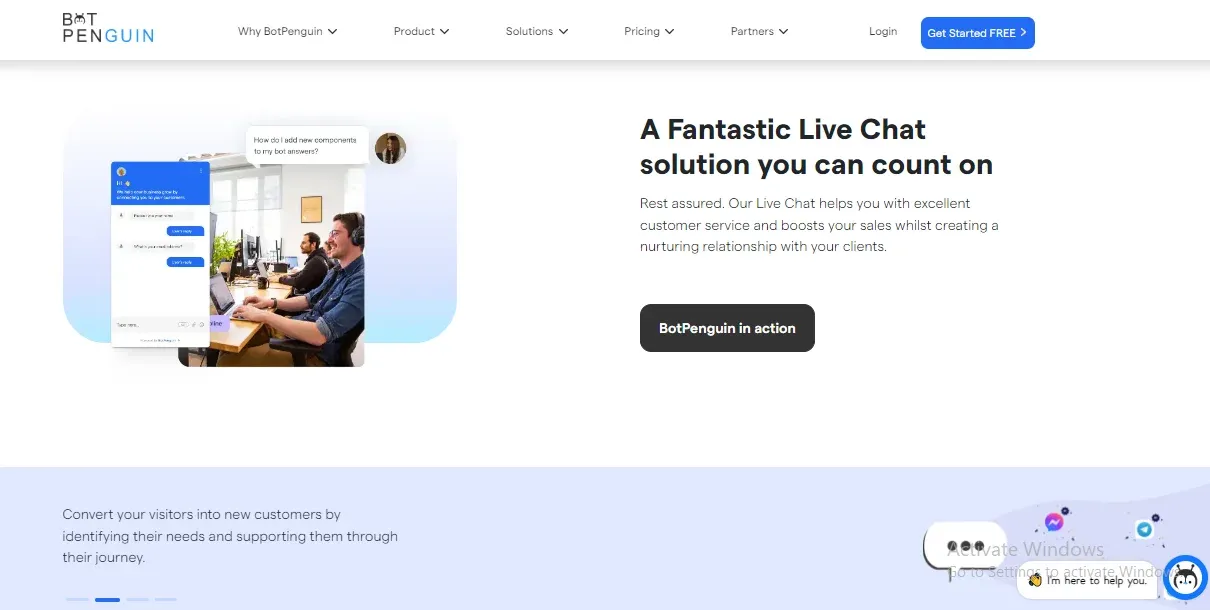
From automated lead engagement to personalized support and recommendations, BotPenguin chatbots integrate empathy and personality you won't find in rigid, script-based bots.
As a fully hosted cloud platform, BotPenguin makes sophisticated AI accessible without technical complexity. Our visual bot builder allows anyone to create and optimize chatbots for business impact.
The Integration of Machine Learning in Live Chat Software
The integration of machine learning is revolutionizing live chat capabilities. By continuously training chatbots on human conversations, machine learning enables them to understand natural language, and provide intelligent responses.
Key machine learning applications in live chat include sentiment analysis to gauge customer moods, and entity extraction to identify key details.
With machine learning, AI chatbots for customer support can resolve a growing range of customer needs, taking live chat to the next level.
Benefits of Machine Learning in Live Chat Software
The integration of machine learning in live chat software brought numerous benefits to businesses and customers alike.
Firstly, machine learning algorithms enabled chatbots to become smarter and more context-aware. They could now understand customer preferences, anticipate their needs, and offer personalized recommendations.
Secondly, machine learning allowed chatbots to continuously improve their performance. By analyzing past interactions and customer feedback, chatbots could learn from their mistakes and refine their responses.
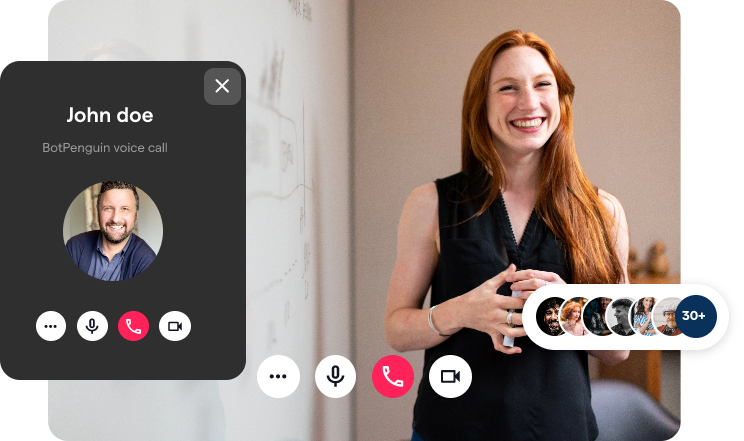
Examples of Machine Learning-Powered Live Chat Software
Several companies have embraced machine learning to enhance their live chat software.
One notable example is Salesforce's Einstein Bots, which leverages machine learning to automate routine customer interactions and provide intelligent recommendations.
Another example is IBM Watson Assistant, which utilizes machine learning algorithms to understand and respond to customer queries in a more human-like manner.
The Emergence of AI Bots in Live Chat Software
The advent of AI bots has transformed live chat software by enabling more natural, human-like conversations. Using NLP and machine learning, today's intelligent chatbots can understand complex queries and exhibit empathy and personality.
As customers increasingly prefer instant, 24/7 digital support, AI bots have become integral in live chat platforms. Companies like BotPenguin are spearheading AI bot integration with features like sentiment analysis, intent recognition, and human hand-off.
By combining the scalability of bots with human oversight, BotPenguin delivers seamless, satisfying customer experiences through live chat. As AI capabilities continue advancing, live chat bots are poised to reshape customer service and engagement.
Benefits of AI Bots in Live Chat Software
The introduction of AI bots revolutionized customer support in several ways.
Firstly, AI bots could handle multiple conversations simultaneously, ensuring that no customer was left waiting for assistance.
Secondly, AI bots could provide personalized recommendations based on customer preferences and past interactions. By analyzing data and understanding customer behavior, these bots could offer tailored solutions, leading to higher customer satisfaction rates.
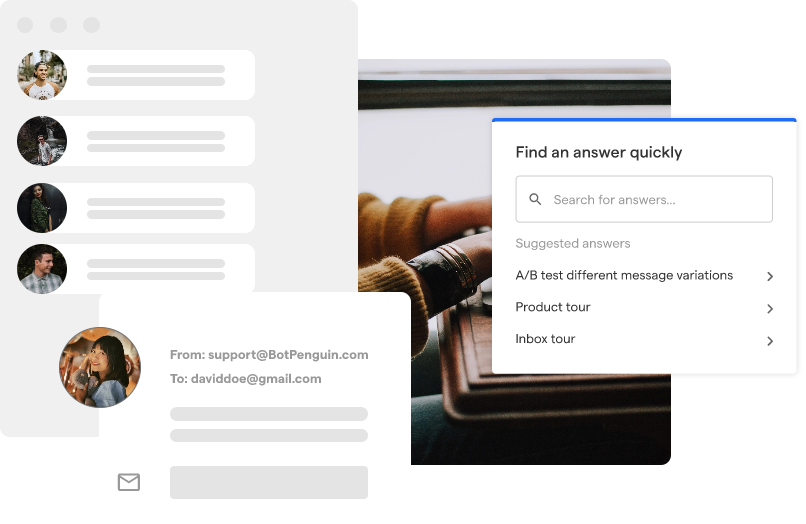
Examples of AI Bots in Live Chat Software
Many companies have embraced AI bots to enhance their customer support.
One prominent example is Amazon's Alexa, a voice-activated AI bot that can perform various tasks, including answering questions and providing recommendations.
Another example is Google Assistant, which utilizes AI to understand and respond to user queries across multiple platforms.
Conclusion
In this blog, we have explored the fascinating evolution of live chat software, from its early text-based days to the emergence of AI bots. As businesses continue to prioritize exceptional customer support, live chat software will play a crucial role in meeting customer expectations.
The evolution of live chat software has revolutionized the way businesses interact with their customers. It provides instant support, personalized recommendations, and round-the-clock availability.
The evolution of live chat reflects the demand for faster, personalized customer service. While early chatbots could only manage basic conversations. Today's AI-powered chatbots can understand natural language, hold meaningful dialogues, and deliver 24/7 support. As this technology continues improving, live chat will grow as a go-to customer engagement channel.
Companies like BotPenguin are leading the way, developing innovative chatbots that feel more human by incorporating empathy, personality, and conversational tone.
Powered by cutting-edge machine learning and natural language processing, BotPenguin builds smart chatbots that deliver human-like conversations. Our self-learning algorithms analyze millions of dialogue examples to enable natural, contextual interactions.
From automated lead engagement to personalized support and recommendations, BotPenguin chatbots integrate empathy and personality you won't find in rigid, script-based bots.
As live chat software grows smarter and more advanced, businesses can look forward to enhanced customer experiences, satisfaction, and loyalty!

